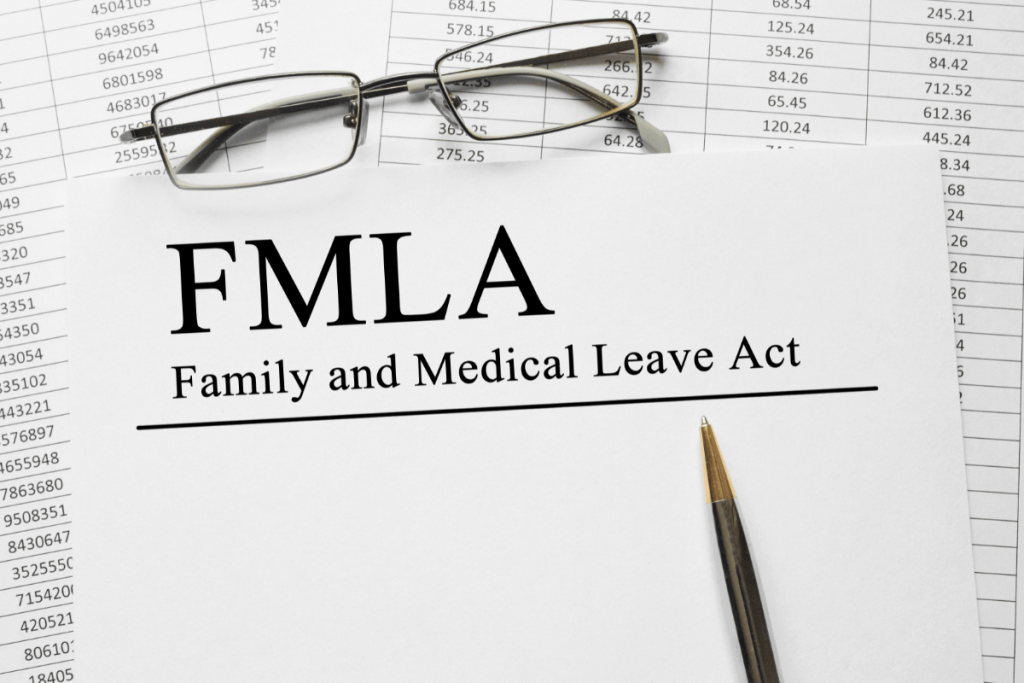- Top Rehab in The State of Tennessee
- 5-Star Reviewed
- Most Major Insurance Accepted
The Family and Medical Leave Act (FMLA) offers job protection for those who need time off to address serious health conditions, including substance use disorders.
At Music City Detox, our Nashville addiction treatment programs can assist you through the FMLA process.
Call us now at 615-695-1009 or verify your insurance.
If you’re wondering whether FMLA covers addiction treatment, the short answer is yes, in most cases, it does.
But there are important rules, requirements, and limitations to understand before taking that step.
At Music City Detox, we’ll help you better understand FMLA and how it can benefit you. We know how overwhelming it can be to decide to reach out for help, and dealing with any extra logistics can be entirely overwhelming.
The good news is, you don’t have to navigate this alone. Contact us today, and one of our compassionate staff members will walk you through everything you need to know and help you begin on your personal journey of addiction recovery.
The Family and Medical Leave Act is a federal law that allows eligible employees to take up to 12 weeks of unpaid, job-protected leave per year for certain family and medical reasons.
During this time, your employer must maintain your health insurance as if you were still working.
FMLA is designed to protect people from losing their jobs when life happens, whether it’s the birth of a child, caring for a loved one with a serious illness, or receiving treatment for their own health condition.
And yes, addiction is considered a serious health condition under this law.

Absolutely.
Substance use disorders are recognized as chronic medical conditions that affect both the brain and body. The Department of Labor explicitly states that treatment for drug or alcohol addiction by a healthcare provider or under the supervision of one qualifies as a serious health condition.
This means that time spent in a detox program, inpatient rehab, or outpatient treatment can be covered by FMLA, as long as it’s medically necessary and provided by a qualified treatment center, like Music City Detox.
However, there’s a key distinction: FMLA protects your job when you take leave to receive treatment, not if you’re absent from work due to the substance use itself (for example, missing shifts because of drinking or using drugs).
Not everyone automatically qualifies for FMLA coverage. To be eligible, you must meet the following criteria:
If you meet these requirements, you’re legally entitled to take up to 12 weeks of leave for qualified medical reasons — including addiction treatment.
Taking FMLA leave might sound intimidating, but it’s a straightforward process when you understand the steps.
Here’s how to do it:
FMLA doesn’t limit you to one type of care; it applies to any medically necessary addiction treatment supervised by healthcare professionals.
At Music City Detox, clients often start with detox and continue into longer-term recovery programs at our trusted partner facilities, ensuring a seamless transition from stabilization to sustained healing.

No, you cannot be fired for going to rehab if you follow the correct process and your leave qualifies under FMLA.
Your employer cannot terminate your employment for taking FMLA leave for a covered condition like addiction treatment.
That said, FMLA doesn’t give immunity from consequences related to substance use itself.
For example, if your company has a zero-tolerance policy and you violate it (such as showing up under the influence or using at work), you can still face disciplinary action.
In other words, FMLA protects your right to get help, but it doesn’t erase prior workplace issues related to substance use.
Unfortunately, FMLA leave is unpaid. However, some employers allow you to use sick days, vacation time, or short-term disability benefits to maintain income while you’re in treatment.
You can also look into state-specific programs or employee assistance programs (EAPs) that offer financial help or flexible scheduling during recovery.
If you’re unsure what your options are, your HR department can provide confidential guidance.
You can take up to 12 weeks of unpaid, job-protected leave in a 12-month period.
That time can be taken all at once (for example, during a 30-day residential program followed by aftercare) or intermittently if you’re attending ongoing outpatient sessions.
Your treatment provider will help determine how much time is appropriate based on your recovery needs.
One of the biggest barriers to recovery is fear.
Fear of the unknown is significant enough, but couple that with fear of judgment, fear of losing income, and fear of losing your job, and you might be more inclined to continue suffering in silence.
FMLA removes one of those barriers by providing legal protection for those who prioritize their health.
Addiction is a medical condition that requires professional treatment. By taking leave under FMLA, you’re not walking away from your responsibilities; you’re investing in your ability to live and work in recovery.

It’s also worth noting that the Americans with Disabilities Act (ADA) may protect individuals in recovery from discrimination in the workplace.
While the ADA doesn’t excuse current drug or alcohol use, it does protect people who are no longer using and have completed or are participating in a supervised rehabilitation program.
This means that if you’ve taken leave under FMLA and returned to work, your employer cannot legally discriminate against you for having a past addiction.
While medication is a crucial part of recovery, it’s not the whole picture. Combining MAT with therapy and community support helps address the root causes of addiction.
At Music City Detox, we provide access to evidence-based therapies like Cognitive Behavioral Therapy (CBT), Dialectical Behavioral Therapy (DBT), and trauma-informed care. We also encourage ongoing participation in recovery groups, family therapy, and relapse prevention programs. This whole-person approach helps clients rebuild confidence, repair relationships, and rediscover their purpose.
Attempting to talk to your boss about anything can feel nerve-wracking. Talking to your boss or HR department about taking leave for addiction treatment might seem entirely impossible.
It can feel beyond vulnerable, like you’re scheduling a time to sit your higher-ups down and expose your deepest secrets. Remember, you’re under no obligation to delve into the nitty-gritty—you can keep it as simple and vague as you’d like to.
Here are a few pointers to help:
If you’re ready to get help but worried about work, you’re not alone. Many of our clients at Music City Detox have used FMLA to take time off and enter treatment, and we help guide them through the process every step of the way.
Our team can provide documentation for your employer, coordinate care with your provider, and ensure you have the support you need while protecting your privacy and job security.
Recovery starts with one decision: to ask for help. If you or someone you love is struggling with addiction, Music City Detox offers safe, compassionate, and effective detox services in the heart of Nashville. Our programs are designed to help you heal physically and mentally, preparing you for the next step in your recovery journey.
Reach out today to learn more about how FMLA can cover addiction treatment and how we can support you in taking that first step toward lasting recovery.
Contact Music City Detox to begin your journey to a healthier, sober life. Your job and your future are worth protecting.